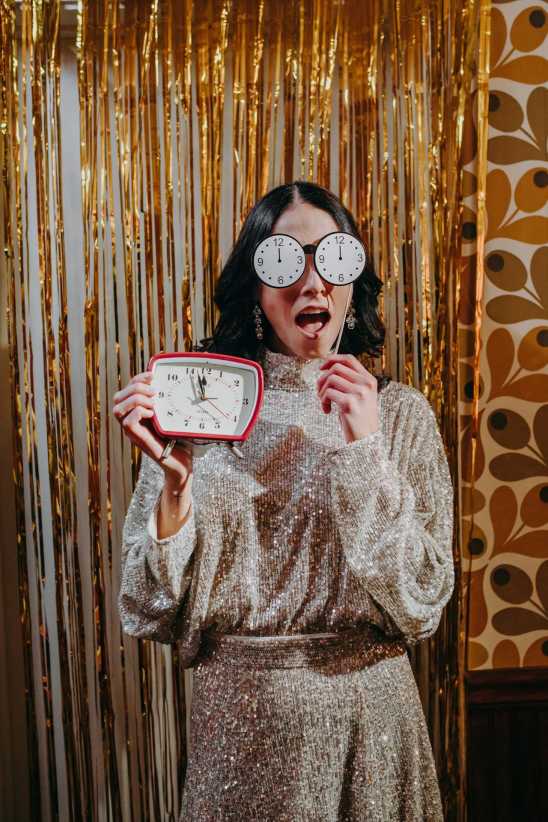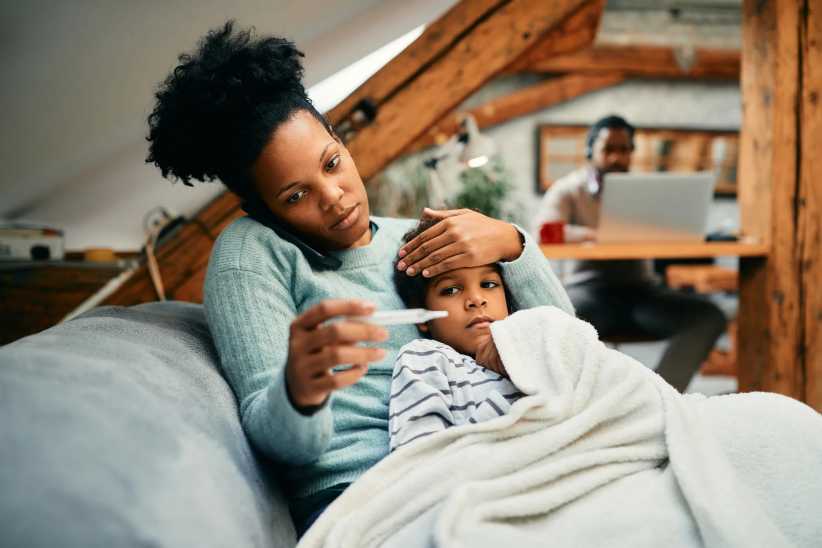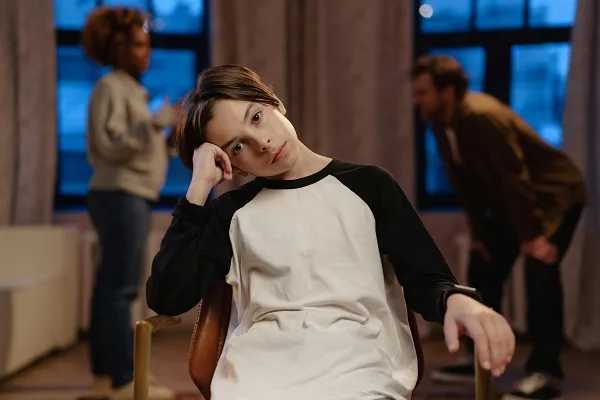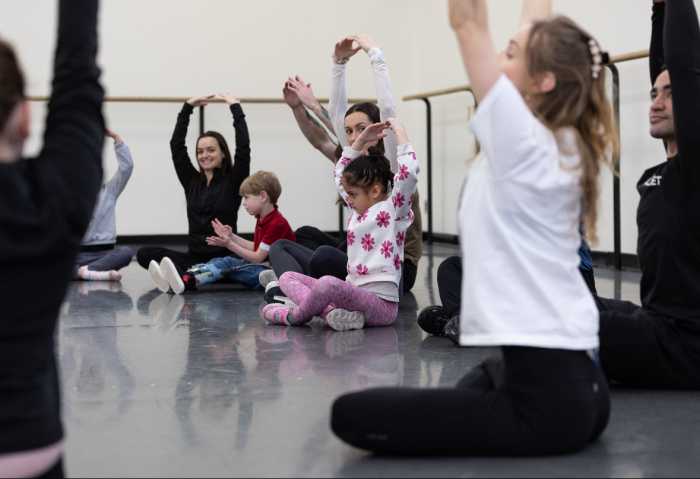 Every parent has nightmares about their child’s teenage years. With the hormones, peer pressure and unending line of uncomfortable questions, parents seem to dread the teenage years more and more every day. Thankfully, our friends (and local moms), Dr. Logan Levkoff and Dr. Jennifer Wider, wrote the ultimate guide to navigating the teen world. Dubbing themselves as “Doctor Moms,” Got Teens? The Doctor Moms’ Guide to Sexuality, Social Media and Other Adolescent Realities offers the perfect answers to all the questions both teens and parents might have.
Every parent has nightmares about their child’s teenage years. With the hormones, peer pressure and unending line of uncomfortable questions, parents seem to dread the teenage years more and more every day. Thankfully, our friends (and local moms), Dr. Logan Levkoff and Dr. Jennifer Wider, wrote the ultimate guide to navigating the teen world. Dubbing themselves as “Doctor Moms,” Got Teens? The Doctor Moms’ Guide to Sexuality, Social Media and Other Adolescent Realities offers the perfect answers to all the questions both teens and parents might have.
Just to start off, could you tell me a little bit about yourselves for our readers? Just on your background and education.
Logan Levkoff: I am a sexologist sex and sexuality educator. I started out in the field at 16 years old as an educator when my parents took out two condoms and two bananas and said this is how you use condoms and you start peer education next week. Having never thought of it being a career, but thankfully, it did become that. I have a Masters in Human Sexuality Education and a Ph. D in Human Sexuality and Family Advice Education. I am an educator through and through. I have designed sexuality education programs in many of New York and Brooklyn independent schools.
Jennifer Wider: I am a woman’s health doctor and I have a medical doctorate from Mount Sinai in New York City. And I studied undergrad actually with nothing to do with medical stuff from Princeton, but I did study journalism. So, I sort of combined my interest in educating people with media for their health and have sort of dedicated my career to that. I am one of the medical advisors for Cosmopolitan magazine and I host a radio show weekly on SiriusXM…Logan and I met each other at a talk in New Jersey actually and it was an instant fit for the two of us because we try to educate people about proactively taking care of their health whether its adults or kids or older adults. We try to be entertaining because we find that if we can present the material in a way that can be digestible by the public, then that is the easiest way to do it and that is what our book intends to be: both informative and entertaining.
What inspired you both to use your years of counseling and educating experience to write this guide?
LL: You know, we’re not just professionals in women’s health and sexuality, in particular for me. We are also moms. Between the two of us, we have five children, ranging in ages from 3-12. And what we found is that you know, we as parents are responsible for creating the next generation of sexually healthy people. And it has always been an important job to talk to your kids about sex and sexuality, but it seems even more so today with all the information that is so readily accessible and it is not necessarily the right information and it is not necessarily the information you want your kids to have. Added to that the fact, it seems like we have lost some of that instinctual parenting and it feels like we have become so scared about telling our kids the wrong information. And we are always told by the TV doctors of ways we can screw up our kids that we have forgotten to trust our instinct and be honest and trust our gut. So, we wanted to create this book that was like, being a professional and mom, a conversation you would have with your friends, sitting in a restaurant. That someone was going to be really honest and help you and empower you all at the same time.
JW: I think also when I was looking for a book on this topic when my eldest daughter was entering her pre-teen age, there was really nothing out there on the market like this particular book. And I said we needed it and all of my friends needed it. There were so many questions and so many changes and challenges from the time I was at the age my daughter is in now, with social media and all the changes and challenges parents face. And they’re frightened and they don’t know where to turn…Logan and I really wanted to take the sensationalism out of it and just present the information in an open and honest way and bring back the ability to parent by instinct.
In your own words, describe what the essence of the book is and what would make it different from other parenting books out on the market right now?
LL: I think that the key to this book is that Jena and I could be you. We are people who do this everyday: we’re friends, we’re colleagues. We know what it is like to be in this world and we are one of you. Everything that we say is something not just from an expert perspective but things we do in our own homes. We are more than happy to share our own experiences and how we deal with these issues and how we lived them as a young person. And I think it is a very realistic take on what it means to parent young people and deal with sex and sexuality today.
JW: But I wanted to add that Logan and I bring to different perspectives: Logan covers a lot of the psychology and the sex and sexual stuff, and I cover a lot of the medical and health stuff. And first and foremost, we are mothers and we are very honest about the things that happened to us in our own childhood and things that happened to us as parents; things that we have done wrong that we want to improve upon and things that happen to all of us as moms and dads really.
Everyone knows that teen years are the most difficult and have always been. But why are parents and teens still struggling with these issues?
LL: I think that adolescence in general brings up all our own insecurities, our current insecurities as adults or as teenagers. Also, it brings us back to this time where we were trying to figure it all out and we want our kids to not be the kind of insecure, emotional mess we may have been. And it’s hard for parents to accept that it just a part of growing up and it is a natural part of growing up.
If you could give one piece of advice for parents in instilling responsibility regarding social media and technology, what would that be?
LL: My first piece of advice would be get to the middle by saying: “I don’t want you not to have a digital life, but when I was a kid, these were the options I had available, this is how I expressed myself. I don’t have the options you have. And I’m not saying I didn’t make mistakes, I made plenty of mistakes. But they weren’t public. So, before you post anything, ask yourself: ‘is this how I want myself to be represented?’”
JW: We are trying to show that a lot of the news and what parents see in the media is sensationalized. At one point in the book, we mention a very prominent study…that revealed that “sexting” wasn’t as common as many people thought. And the statistics are on the side of the parents… Social media can be positive and it can be negative; and it is a responsibility given to your child to engage in social media or to get a phone.
Do you have any advice for parents in finding the balance between giving their child enough space while also keeping lines of communication open about various issues?
JW: I think it is such an important concept here about giving your child privacy and letting your child define their own individuality and autonomy while at the same time being a companionate and open parent…You evolve as a parent with your child’s evolution I think. You need to learn to respect their privacy and autonomy as you go. As long as you trust them, you are able to afford them these changes and they will honor those changes.
In the book, you both draw from your own personal experience. How did using your personal experience as moms and from when you were teens help you with writing this guide?
JW: I think it is the crux of the guide for us. I think it absolutely is what makes this a unique book because it is the essence of what we are saying. If you want your child to be open and honest with you, if you want to foster an open and honest relationship with communication, you have to be willing to be open and honest with yourself and each other. Logan and I were so open and honest; we shared some of the most embarrassing things that have ever happened to us in the book and they’re humorous. It disarms your readership and lets them know that above anything we are people, we are humans.
LL: Jena and I could not be the women we are without the experiences we had as young people. We are who we are because of them. We would be very different as authors, as women if we did not have those experiences. They have crafted who we are and have given us the opportunity and motivation to write a book that is so private and candid and realistic… Being human is most important part of why we wrote this [book] because it is universal for all of us.
JW: Adolescence is such a funny time. and it doesn’t have to be so serious and scary and overwhelming all the time. You need a healthy dose of humor and a healthy dose of comedy to get through this time. And parents needs to remember that. They approach their kids lightly and not be so heavy and dire and scary. It can be enlightening and inspiring and make you closer with your child if you are willing to be open and honest. And I think that is our take home message.













